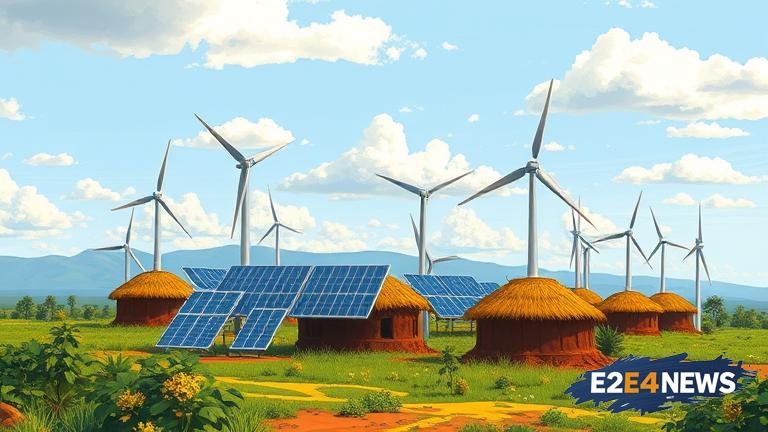The African continent is witnessing a significant shift towards renewable energy, driven by the need to address the pressing issues of energy access, energy security, and climate change. With a growing population and increasing economic activities, the demand for energy is on the rise, and renewable energy is emerging as a viable solution. Solar and wind power are the most prominent forms of renewable energy in Africa, with countries like South Africa, Egypt, and Morocco leading the way. The cost of renewable energy technologies has decreased dramatically over the years, making them more competitive with fossil fuels. This has led to an increase in investments in the renewable energy sector, with many international companies and organizations committing to support Africa’s energy transition. The African Union’s Agenda 2063 and the United Nations’ Sustainable Development Goals (SDGs) have also played a crucial role in promoting renewable energy in Africa. The continent’s abundant natural resources, including solar and wind, provide a unique opportunity for Africa to leapfrog traditional energy systems and adopt renewable energy technologies. Many African countries have set ambitious renewable energy targets, with some aiming to generate up to 100% of their electricity from renewable sources by 2030. However, despite the progress made, significant challenges remain, including the lack of infrastructure, limited access to financing, and energy storage. To address these challenges, governments, private sector companies, and international organizations are working together to develop innovative solutions and business models. The development of renewable energy in Africa is not only good for the environment, but it also has the potential to create jobs, stimulate local economies, and improve energy access. In fact, a recent report by the International Renewable Energy Agency (IRENA) found that the renewable energy sector could support up to 24 million jobs globally by 2030. Africa’s renewable energy revolution is also driven by the need to reduce greenhouse gas emissions and mitigate the impacts of climate change. The continent is already experiencing the effects of climate change, including rising temperatures, changing precipitation patterns, and increased frequency of extreme weather events. By transitioning to renewable energy, African countries can reduce their carbon footprint and contribute to global efforts to limit global warming to well below 2°C. Furthermore, renewable energy can also improve energy access, particularly in rural areas where many communities lack access to modern energy services. Decentralized renewable energy systems, such as mini-grids and solar home systems, are being used to provide energy access to off-grid communities. The use of renewable energy can also improve energy security, reducing dependence on imported fossil fuels and enhancing energy self-sufficiency. In addition, renewable energy can also contribute to economic development, by creating new industries, jobs, and opportunities for entrepreneurship. The African renewable energy market is expected to continue growing, driven by declining technology costs, improving policy and regulatory frameworks, and increasing investment. However, to achieve the full potential of renewable energy in Africa, it is essential to address the existing challenges and develop innovative solutions to support the continent’s energy transition. This includes developing new business models, improving access to financing, and enhancing regional cooperation and knowledge sharing. Overall, Africa’s renewable energy revolution is gaining momentum, and it is essential to continue supporting and promoting the development of renewable energy in the continent to achieve a sustainable and prosperous future.
